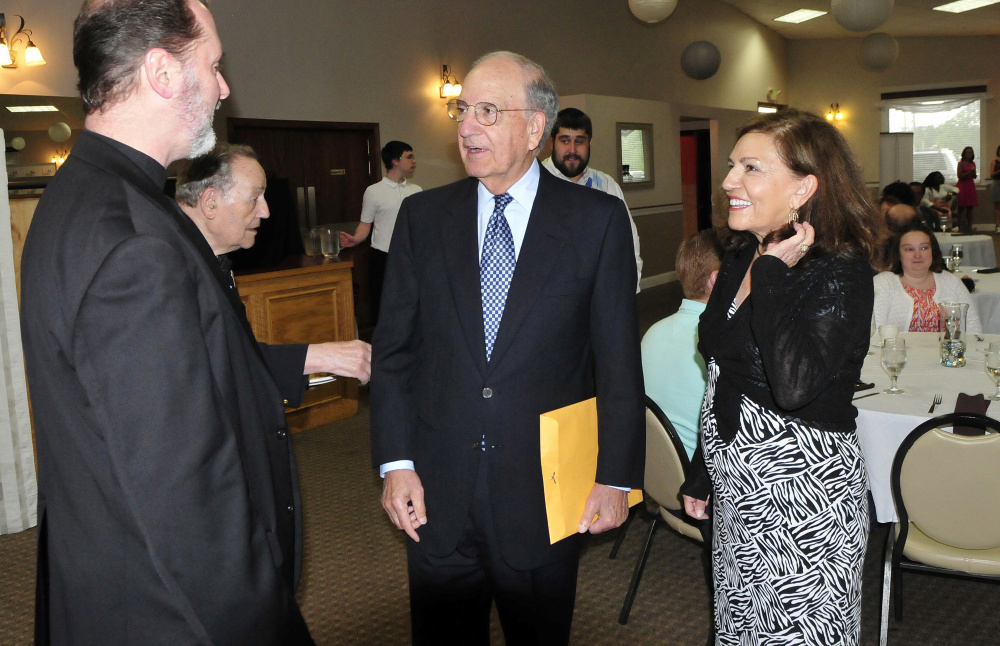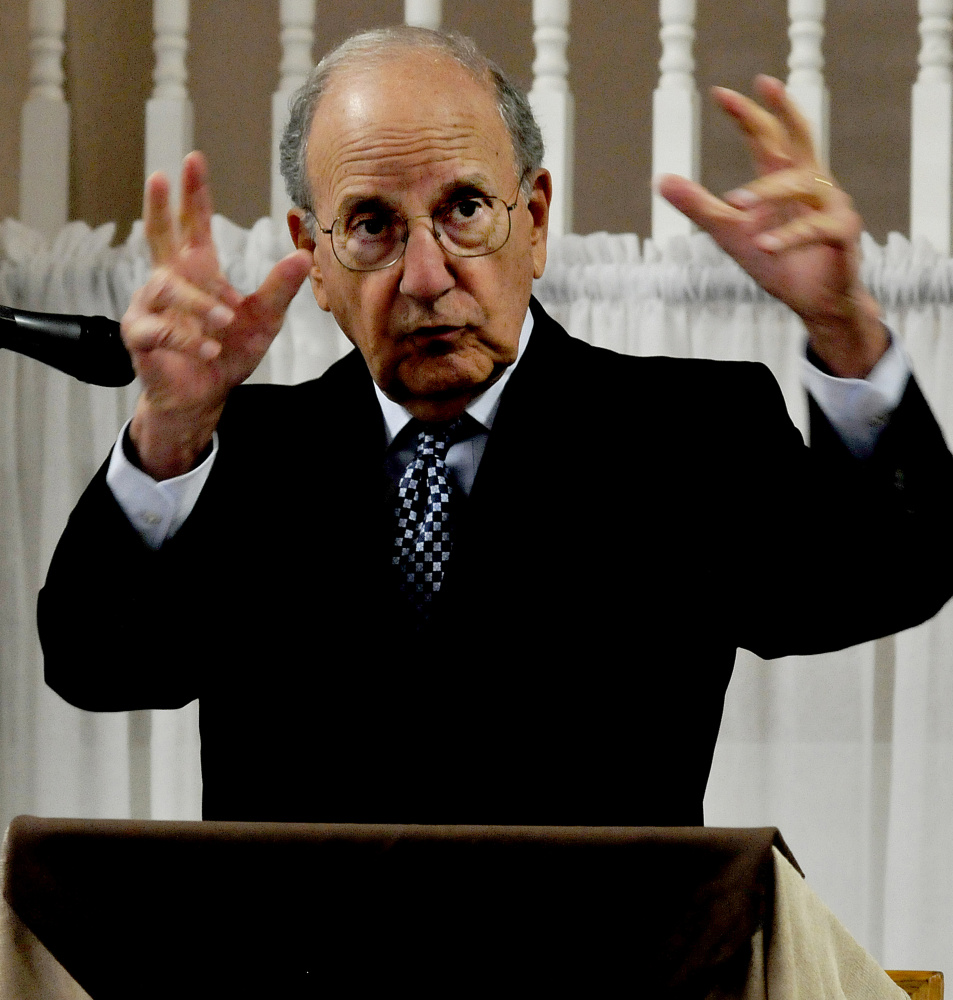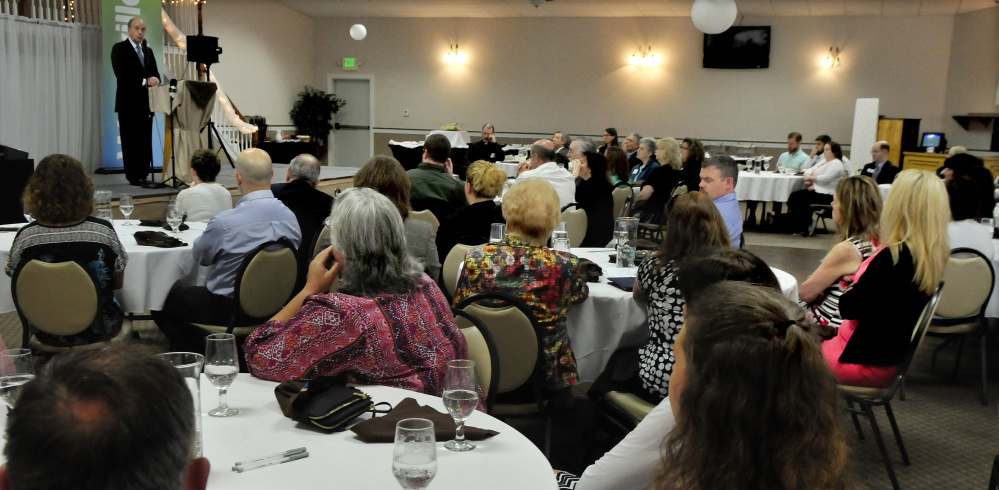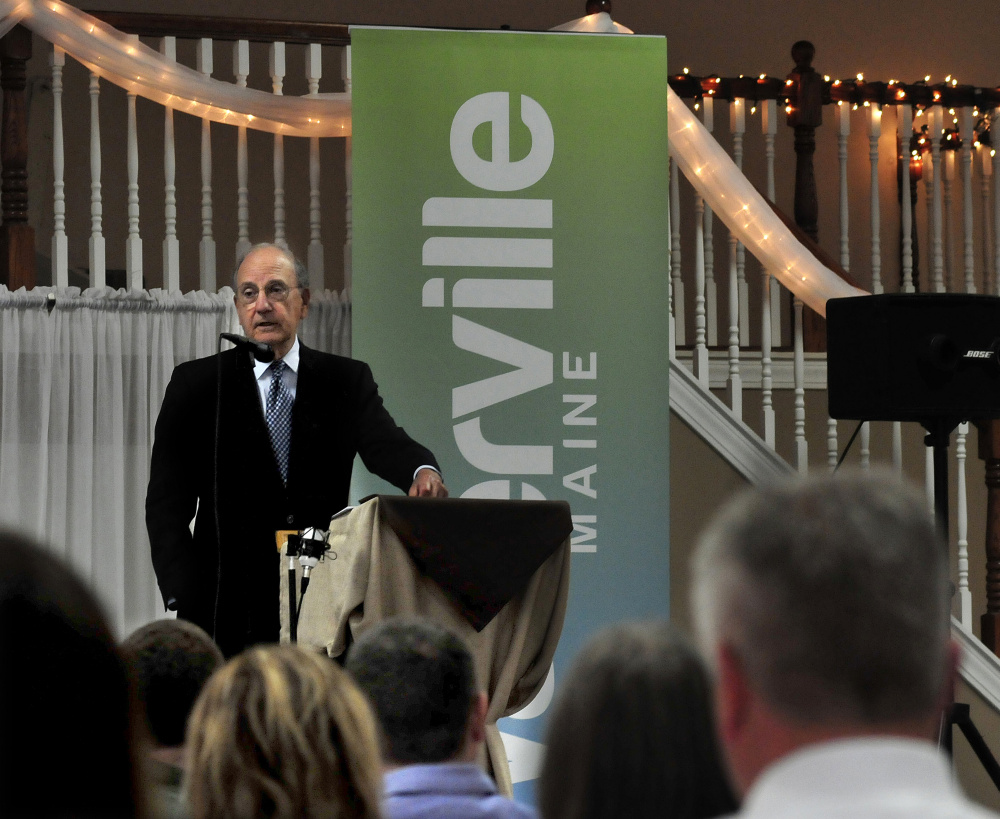WATERVILLE — Former U.S. Sen. George Mitchell said Tuesday that President Donald Trump’s decision to withdraw the country from the Paris climate agreement is a historic mistake that will allow another major nation such as China to become dominant in innovating the growing field of clean energy.
“That’s a role the U.S. ought to be playing,” Mitchell said.
Mitchell, a Waterville native well known for his roles in peace negotiations in Northern Ireland and the Middle East, made the comments while speaking Tuesday before the Mid-Maine Chamber’s Leadership Luncheon, where he addressed what he saw as the important economic issues facing the United States.
When asked about the U.S. Senate pushing for a vote on a yet-to-be revealed version of a Republican health care bill, Mitchell said the process the Senate was following by working in secret was “wrong and inappropriate.”
He said the process should be open and transparent, but the Senate was nearing a vote on a bill many members hadn’t read and no member of the public had seen.
“Doing it behind closed doors is inappropriate,” he said.
Mitchell also said he believes it is inevitable that the United States eventually will move to a universal health care system. He said it probably wouldn’t happen anytime soon based on politics, but he felt there was movement in that direction.
“I think it will happen and I think it will be a beneficial thing for most Americans,” Mitchell said.
He said countries all over the world have interest in what the United States does. Mitchell said the fastest-growing area in job creation involves the field of clean energy, making Trump’s shunning of the global climate agreement dealing with greenhouse gas emissions all the more unwise.
“We should devote our efforts to growth energies of the future,” Mitchell said. “One of them, I believe, is in clean energy. It is without a doubt and beyond rational dispute that in the course of this century, the world will transition away from a carbon-based economy.”
On these and other issues, Mitchell said he still thinks the United States is poised to maintain its role as a world leader.
“We have faced many more serious challenges in the past and we’ve overcome them,” he said. He added that despite its imperfections, the U.S. “remains the most free, most just and most open society not only in the world but in the history of the world. I disagree with people who said the U.S. is a country in decline.”
Mitchell pointed to past moments of major transition in human history, including the Industrial Revolution, a transition to new manufacturing processes, marked by a time of unrest, widespread violence and misery. But he also said it was the greatest increase in human productivity that created new jobs, goods and services. Once the Industrial Revolution spread to the United States, he said, the country sped to the forefront.
He said the revolution through which the world is passing now will be viewed by historians as significant a turning point as the Industrial Revolution.
Mitchell pointed to the smartphone as a signal of the change of pace in technology. He said technology is neutral, equally able to be used for good purposes as for destructive reasons.
“One use of technology changed combined with global trade has been the creation of more wealth than ever before,” Mitchell said. “That has benefited a few but has not been distributed widely.”
This has left many feeling more as victims of the revolution than as beneficiaries. Through globalization and trade agreements, jobs undoubtedly have been lost, but Mitchell said future agreements must be strengthened, as the “vast majority of job losses in our country and around the world” result from innovation. He pointed to stage coach manufacturing, once a thriving industry that was put out of business by the automobile. He also mentioned seagoing captains hunting whales for oil, again put out of business by the discovery of oil underground.
“We have to try not to recreate the past and recreate industries, but rather we have to figure out a policy which no country has done successfully,” Mitchell said, one that “harnesses the benefits” of changes in technology, but also helps those affected by changes gain skills for the 21st century.
Colin Ellis — 861-9253
cellis@centralmaine.com
Twitter: @colinoellis
Send questions/comments to the editors.







Comments are no longer available on this story